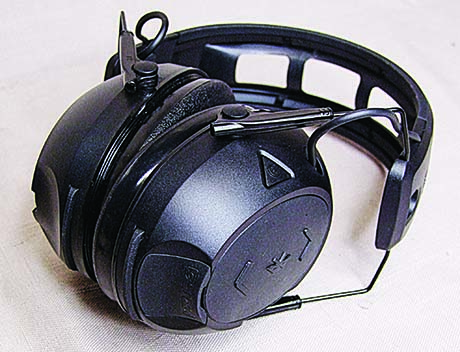
By Dave Workman
Editor-in-Chief
A coalition of gun rights organizations, businesses and private citizens has filed a federal lawsuit against California Gov. Gavin Newsom and state Attorney General Robert Bonta, challenging a new requirement that firearms dealers must video record all transactions, alleging the law violates the First, Second, Fourth, Fifth and 14th Amendments.
The 115-page complaint was filed in U.S. District Court for the Central District of California. The case is known as Richards v. Newsom.
Plaintiffs in the case are the Second Amendment Foundation, California Rifle & Pistol Association, Gun Owners of America, Gun Owners of California, the Gun Owners Foundation, On Target Indoor Shooting Range, Gaalswyk Enterprises and four private citizens, Jeffrey Vandermeulen, Gerald Clark, Jesse Harris and Adam Richards, for whom the case is named. They are represented by attorneys C.D. Michel and Tiffany D. Cheufront, Michel & Associates in Long Beach, and Donald Kilmer, Kilmer Law Office in Idaho.
In a prepared statement, SAF founder and Executive Vice President Alan Gottlieb explained, “Requiring firearms retailers to video record their transactions is not only an egregious violation of privacy, it involves an expense that is both cost-prohibitive, and could literally drive small dealers out of business. In addition, it would be impossible to record such transactions at gun shows, because at such events, dealers are merely vendors, operating in a large facility where such equipment would be impossible to install.”
“The state is imposing Orwellian tactics to literally view and overhear private conversations of anyone who walks into a gun shop or visits a gun show, or the home of a residence-based licensed firearms dealer,” added SAF Executive Director Adam Kraut. “That is a violation of privacy to which no person exercising any other civil right would ever be subjected.”
The statute at the center of this action is California Penal Code Section 26806 (also known as “SB 1384” or “Section 26806”),” the complaint explains. The intent is to enable the state to view and overhear the private and confidential communications of anyone who enters a gun shop, gun show property, or home of a home-based Federal Firearm Licensee (“FFL”).
“Not only does Section 26806 violate the individual rights of those patrons, customers, family members, friends, clients, and the FFLs themselves,” the complaint adds, “but also it chills the desire to exercise those rights for fear of being video and audio recorded in communications and situations that are confidential in nature.”
Later in the court document, plaintiffs note, “The state of California has, hands down, the most rigorous regulatory regime for commerce in firearms and ammunition in the United States. That regulatory regime applies to the operation of gun show events throughout California. The laws related to the acquisition and sale of firearms is arguably stricter at a gun show than at brick-and-mortar stores or internet sales.”
A few pages later, the complaint observes, “As then-Arkansas Attorney General Leslie Rutledge noted in 2020, the Second Amendment is constantly ‘under assault.’ Others have observed that ‘[t]he Second Amendment is the most attacked right,’ so much so that the Supreme Court has had to warn openly hostile lower courts that the Second Amendment ‘is not ‘a second-class right, subject to an entirely different body of rules than the other Bill of Rights guarantees.’”
Toward the end of the complaint, plaintiffs argue, “Section 26806 Violates Virtually Every Right Protected by the First Amendment. The First Amendment to the U.S. Constitution provides that ‘Congress shall make no law respecting an establishment of religion or prohibiting the free exercise thereof; or abridging the freedom of speech, or of the press; or the right of the people peaceably to assemble, and to petition the government for a redress of grievances.’ The Fourteenth Amendment incorporates these protections against the states through its Due Process Clause.
“Defendants have no compelling (or even legitimate) governmental interest in recording video and audio of lawful gun owners constantly for the mere hope of catching a criminal somewhere in the thousands of hours of tape. But in reviewing that tape, would have to review private and confidential matters that the government has no right to.
“Further, Section 26806 is neither narrowly tailored to nor the least restrictive means of achieving the state’s dubious interests. Indeed, it sweeps up all communications—even communications concerning lawful (and constitutionally protected) products and communications that are private and confidential and have nothing to do with the process of transactions for the purchase of a firearm.”
SAF’s Gottlieb noted to TGM that this is the 14th lawsuit his organization has filed this year, and overall the foundation is engaged in 57 active lawsuits around the country.



